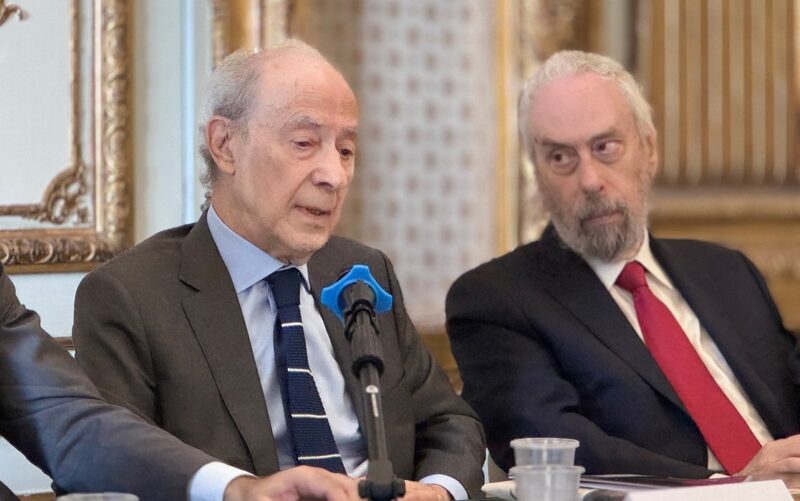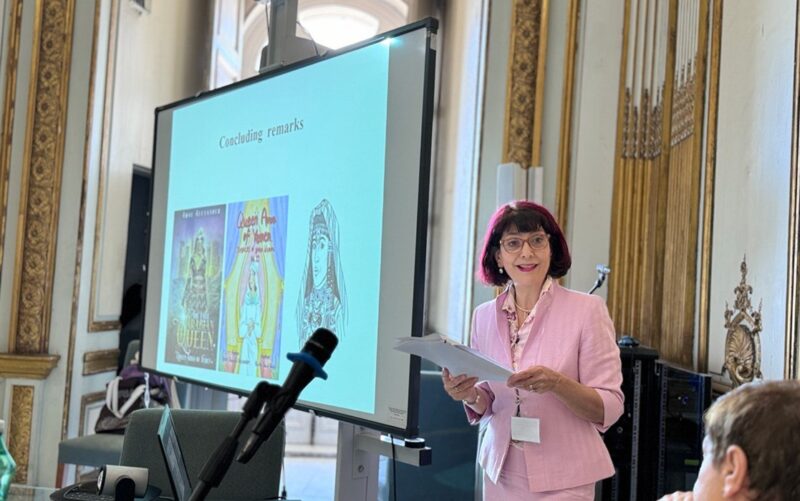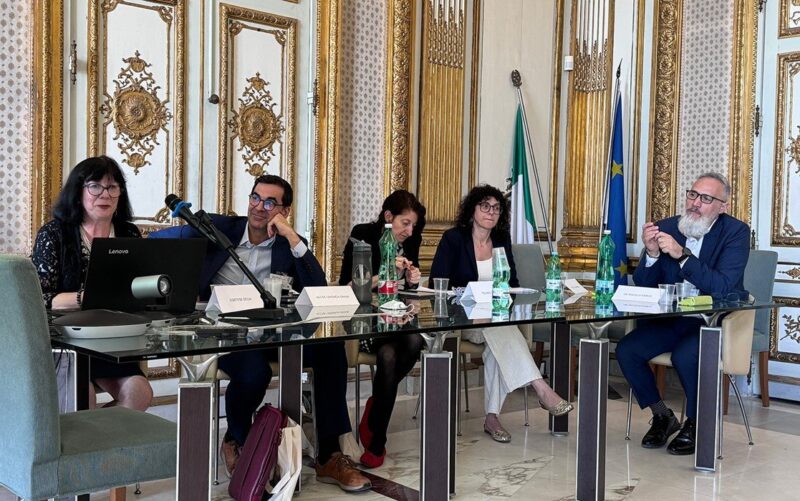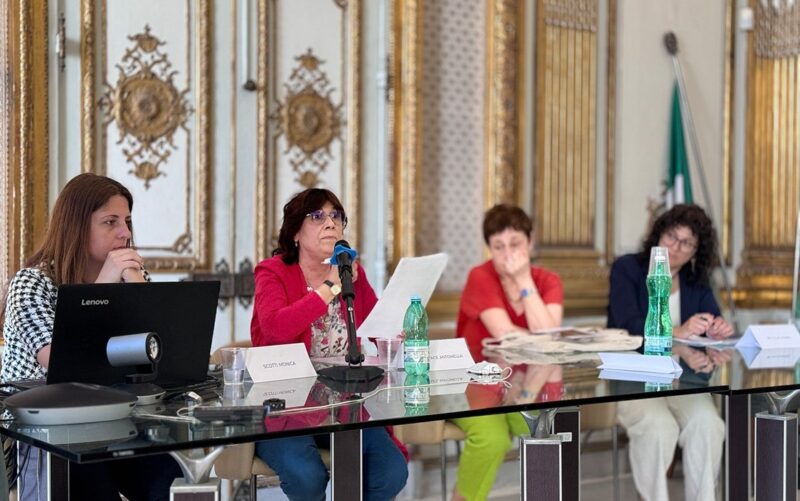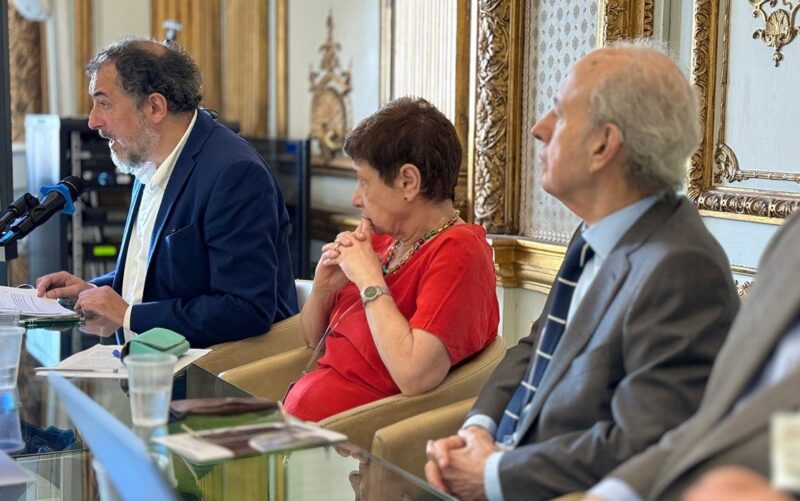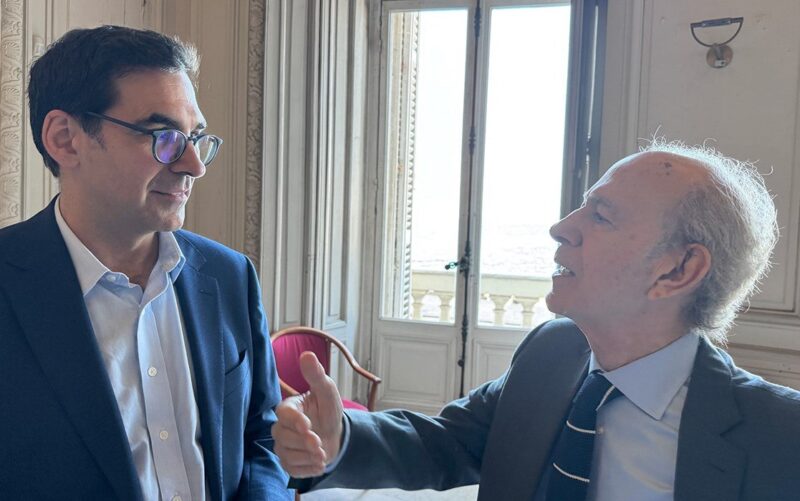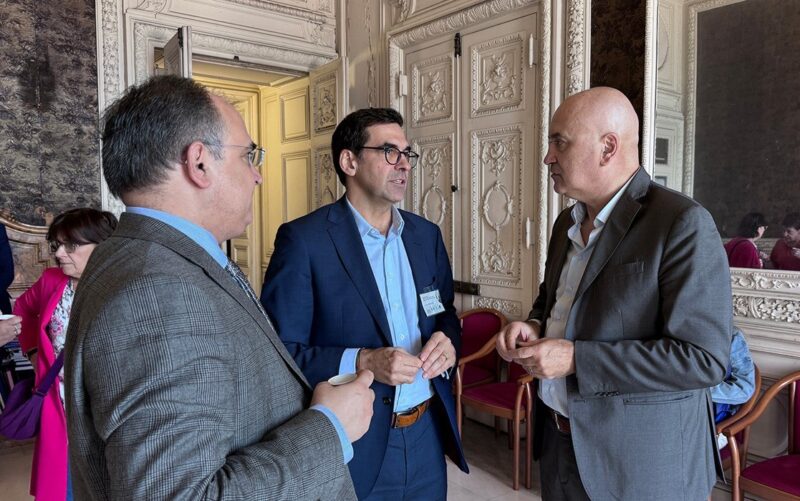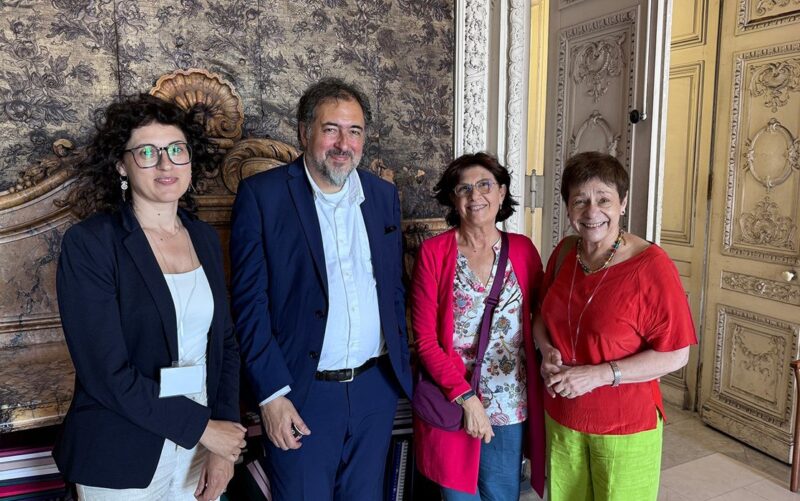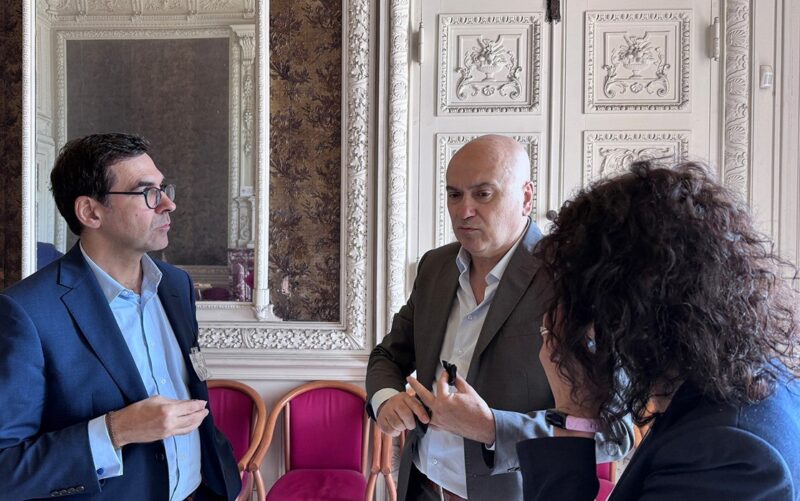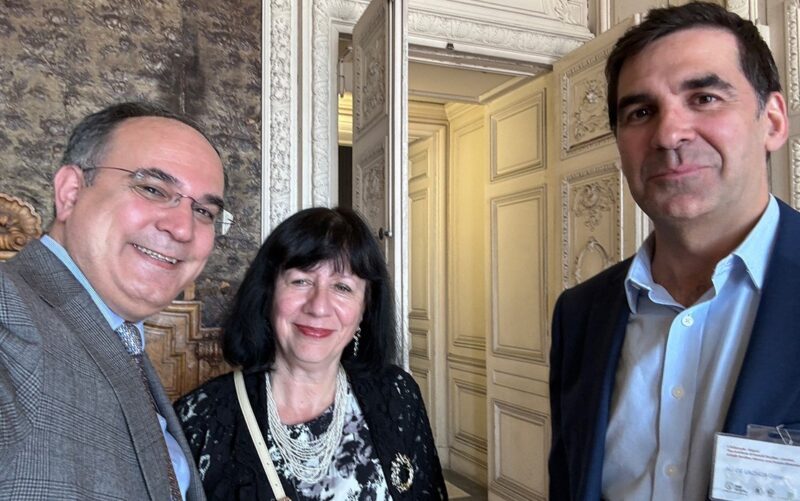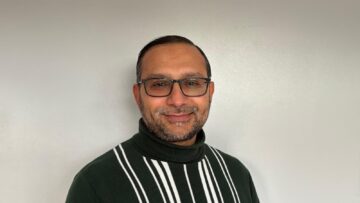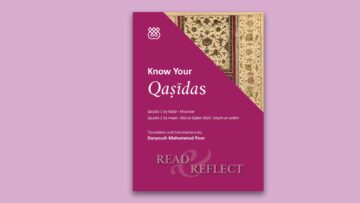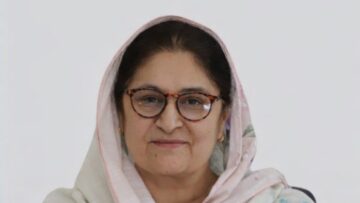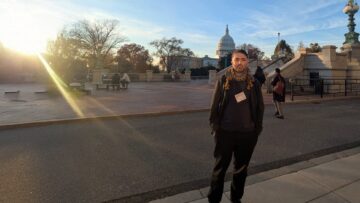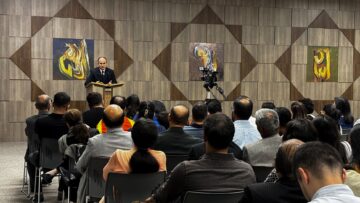Università degli Studi di Napoli ’L’Orientale’ (UniOr) and The Institute of Ismaili Studies (IIS) recently held a joint colloquium at the Palazzo Du Mesnil in Naples. The colloquium highlighted the contributions of scholars at UniOr and IIS as well as the development of Italian scholarship on Ismaili studies. This is one of many collaborations between IIS and other research institutions to promote and disseminate knowledge on both the Ismaili and wider Shiʿi tradition. Read highlights from the colloquium below:
The first panel, chaired by Dr Omar Alí-de-Unzaga, opened with a brief yet descriptive overview of the history of the field of Ismaili Studies from Dr Farhad Daftary. Professor Carmela Baffioni introduced her research and translation of Risala al-Jāmiʿa, the “Crown of the Epistles”, a summary of the Epistles of the Brethren of Purity whose authorship and chronology are still debated. Professor Baffioni’s translation of Risala al-Jāmiʿa will be published by IIS later this year as part of the Epistles of the Brethren of Purity series. Dr Daryoush Mohammad Poor explored the notion of ḥanīfiyya (pristine faith) in the work of al-Shahrastānī (d. 1153). Dr Simonetta Calderini revisited the life of Arwa al-Sulayhi (d.1138), who was designated as the hujja of Yemen by the Fatimid Imam-Caliph al-Mustansir (d. 1094). Dr Toby Mayer returned to al-Shahrastānī, exploring his conception of higher thought and its application to scriptural hermeneutics. Dr Mayer has elaborated on al-Shahrastānī’s Qurʾanic commentary in Keys to the Arcana, with a second volume forthcoming this year.
In the second panel, chaired by Professor Carlo De Angelo, Dr Delia Cortese describes the intellectual interactions between Fatimid Egypt and eastern states. Dr Omar Alí-de-Unzaga presented in Italian on recently uncovered speeches of al-Muʾayyad fī’l-Dīn al-Shīrāzī (d. c. 1078). Learn more about al-Shīrāzī ‘s life in his memoir, translated by Verena Klemm and published by IIS. Dr Serena Tolino explored the role of eunuchs and their political positioning in the Fatimid Empire. Finally, Dr Maria De Cillis delved into the concept of sympatheia in Classic Greek, Fatimid and Renaissance texts, an idea she will explore further in her upcoming lecture as part of the IIS’ Islamic History and Thought Lecture Series.
The third panel, chaired by Dr Maria De Cillis, was presented entirely in Italian. Professor Carlo De Angelo recounted the ground-breaking work of the late Professor Agostino Cilardo, an eminent scholar of Ismaili legal history. You can explore Professor Cilardo’s commentary on al-Qāḍī al-Nuʿmān’s Minhāj al-Farāʾiḍ in The Early History of Ismaili Jurisprudence. Dr Monica Scotti explored verses from Tayyibi Daʿi Ibn al-Walid’s (d. 1268) Mukhtaṣar al-Uṣūl, refuting anthropomorphic descriptions from medieval Islamic interpretive traditions. Finally, Professor Antonella Straface elaborated on Ismaili notions of tawḥīdThe Oneness of God or belief in Divine Unity, one of the fundamental tenets of Islam.. The colloquium was concluded by Professor Carmela Baffioni.
IIS is grateful to all the participants of the colloquium and especially its organisers Professor Antonella Straface and Dr Maria De Cillis. The colloquium highlighted the wide scope and significance of Ismaili Studies in their diverse manifestations of thought and heritage, showing the ongoing development of the field.


